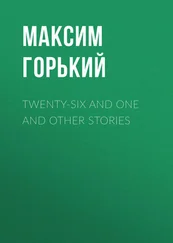Генрик Сенкевич - Lillian Morris, and Other Stories
Здесь есть возможность читать онлайн «Генрик Сенкевич - Lillian Morris, and Other Stories» — ознакомительный отрывок электронной книги совершенно бесплатно, а после прочтения отрывка купить полную версию. В некоторых случаях можно слушать аудио, скачать через торрент в формате fb2 и присутствует краткое содержание. Жанр: foreign_antique, foreign_prose, на английском языке. Описание произведения, (предисловие) а так же отзывы посетителей доступны на портале библиотеки ЛибКат.
- Название:Lillian Morris, and Other Stories
- Автор:
- Жанр:
- Год:неизвестен
- ISBN:нет данных
- Рейтинг книги:3 / 5. Голосов: 1
-
Избранное:Добавить в избранное
- Отзывы:
-
Ваша оценка:
- 60
- 1
- 2
- 3
- 4
- 5
Lillian Morris, and Other Stories: краткое содержание, описание и аннотация
Предлагаем к чтению аннотацию, описание, краткое содержание или предисловие (зависит от того, что написал сам автор книги «Lillian Morris, and Other Stories»). Если вы не нашли необходимую информацию о книге — напишите в комментариях, мы постараемся отыскать её.
Lillian Morris, and Other Stories — читать онлайн ознакомительный отрывок
Ниже представлен текст книги, разбитый по страницам. Система сохранения места последней прочитанной страницы, позволяет с удобством читать онлайн бесплатно книгу «Lillian Morris, and Other Stories», без необходимости каждый раз заново искать на чём Вы остановились. Поставьте закладку, и сможете в любой момент перейти на страницу, на которой закончили чтение.
Интервал:
Закладка:
Every morning at four I was at the head of the caravan; before me the scouts, some fifteen hundred yards distant, sang songs, which their Indian mothers had taught them; behind me at the same distance moved the caravan, like a white ribbon on the prairie, – and what a wonderful moment, when, about two hours later, I hear on a sudden behind me the tramp of a horse. I look, and behold the sight of my soul, my beloved is approaching. The morning breeze bears behind her her hair, which either had been loosened from the movement, or badly fastened on purpose, for the little rogue knew that she looked better that way, that I liked her that way, and that when the wind threw the tress on me I pressed it to my lips. I feign not to notice her tricks, and in this agreeable meeting the morning begins for us. I taught her the Polish phrase: “Dzien dobry” (good morning). When I heard her pronouncing those words, she seemed still dearer; the memory of my country, of my family, of years gone by, of that which had been, of that which had passed, flew before my eyes on that prairie like mews of the ocean. More than once I would have broken out in weeping, but from shame I restrained with my eyelids the tears that were ready to flow. She, seeing that the heart was melting in me, repeated like a trained starling: “Dzien dobry! dzien dobry! dzien dobry!” And how was I not to love my starling beyond everything? I taught her then other phrases; and when her lips struggled with our difficult sounds, and I laughed at a faulty pronunciation, she pouted like a little child, feigning anger and resentment. But we had no quarrels, and once only a cloud flew between us. One morning I pretended to tighten a strap on her stirrup, but in truth the leopard Uhlan was roused in me, and I began to kiss her foot, or rather the poor shoe worn out in the wilderness. Then she drew her foot close to the horse, and repeating: “No, Ralph! no! no!” sprang to one side; and though I implored and strove to pacify her she would not come near me. She did not return to the caravan, however, fearing to pain me too much. I feigned a sorrow a hundred times greater than I felt in reality, and sinking into silence, rode on as if all things had ended on earth for me. I knew that compassion would stir in her, as indeed it did; for soon, alarmed at my silence, she began to ride up at one side and look at my eyes, like a child which wants to know if its mother is angry yet, – and I, wishing to preserve a gloomy visage, had to turn aside to avoid laughing aloud.
But this was one time only. Usually we were as gladsome as prairie squirrels, and sometimes, God forgive me, I, the leader of that caravan, became a child with her. More than once when we were riding side by side I would turn on a sudden, saying to her that I had something important and new to tell, and when she held her inquisitive ear I whispered into it: “I love.” Then she also whispered into my ear in answer, with a smile and blush, “I also!” And thus we confided our secrets to each other on the prairie, where the wind alone could overhear us. In this manner day shot after day so quickly, that, as I thought, the morning seemed to touch the evening like links in a chain. At times some event of the journey would vary such pleasant monotony. A certain Sunday the half-breed Wichita caught with a lasso an antelope of a large kind, and with her a fawn which I gave to Lillian, who made for it a collar on which was put a bell, taken from a mule. This fawn we called Katty. In a week it was tame, and ate from our hands. During the march I would ride on one side of Lillian, and Katty would run on the other, raising its great black eyes and begging with a bleat for caresses.
Beyond the Winnebago we came out on a plain as level as a table, broad, rich, primeval. The scouts vanished from our eyes at times in the grass; our horses waded, as if in a river. I showed Lillian that world altogether new to her, and when she was delighted with its beauties, I felt proud that that kingdom of mine was so pleasing to her. It was spring, – April was barely reaching its end, the time of richest growth for grasses of all sorts. What was to bloom on the plains was blooming already.
In the evening such intoxicating odors came from the prairie, as from a thousand censers; in the day, when the wind blew and shook the flowery expanse, the eye was just pained with the glitter of red, blue, yellow, and colors of all kinds. From the dense bed shot up the slender stalks of yellow flowers, like our mullein; around these wound the silver threads of a plant called “tears,” whose clusters, composed of transparent little balls, are really like tears. My eyes, used to reading in the prairie, discovered repeatedly plants that I knew: now it was the large-leaved kalumna, which cures wounds; now the plant called “white and red stockings,” which closes its cups at the approach of man or beast; finally, “Indian hatchets,” the odor of which brings sleep and almost takes away consciousness. I taught Lillian at that time to read in this Divine book, saying, —
“It will come to you to live in forests and on plains; it is well then to know them in season.” In places on the level prairie rose, as if they were oases, groups of cottonwood or alder, so wreathed with wild grapes and lianas that they could not be recognized under the tendrils and leaves. On the lianas in turn climbed ivy and the prickly, thorny “wachtia,” resembling wild roses. Flowers were just dropping at all points; inside, underneath that screen and beyond that wall, was a certain mysterious gloom; at the tree trunks were sleeping great pools of water of the spring-time, which the sun was unable to drink up; from the tree-tops and among the brocade of flowers came wonderful voices and the calling of birds. When for the first time I showed such trees to Lillian and such hanging cascades of flowers, she stood as if fixed to the earth, repeating with clasped hands, —
“Oh, Ralph! is that real?”
She said that she was a little afraid to enter such a depth; but one afternoon, when the heat was great, and over the prairie was flying, as it were, the hot breath of the Texan wind, we rode in, and Katty came after us.
We stopped at a little pool, which reflected our two horses and our two forms; we remained in silence for a time. It was cool there, obscure, solemn as in a Gothic cathedral, and somewhat awe-inspiring. The light of day came in bedimmed, greenish from the leaves. Some bird, hidden under the cupola of lianas, cried, “No! no! no!” as if warning us not to go farther; Katty began to tremble and nestle up to the horses; Lillian and I looked at each other suddenly, and for the first time our lips met, and having met could not separate. She drank my soul, I drank her soul. Breath began to fail each of us, still lips were on lips. At last her eyes were covered with mist, and the hands which she had placed on my shoulders were trembling as in a fever: she was seized with a kind of oblivion of her own existence, so that she grew faint and placed her head on my bosom. We were drunk with each other, with bliss, and with ecstasy. I dared not move; but because I had a soul overfilled, because I loved a hundred times more than may be thought or expressed, I raised my eyes to discover if through the thick leaves I could see the sky.
Recovering our senses, we came out at last from beneath the green density to the open prairie, where we were surrounded by the bright sunshine and warm breeze; before us was spread the broad and gladsome landscape. Prairie chickens were fluttering in the grass, and on slight elevations, which were perforated like a sieve by prairie dogs, stood, as it were, an army of those little creatures, which vanished under the earth at our coming; directly in front was the caravan, and horsemen careering around it.
Конец ознакомительного фрагмента.
Интервал:
Закладка:
Похожие книги на «Lillian Morris, and Other Stories»
Представляем Вашему вниманию похожие книги на «Lillian Morris, and Other Stories» списком для выбора. Мы отобрали схожую по названию и смыслу литературу в надежде предоставить читателям больше вариантов отыскать новые, интересные, ещё непрочитанные произведения.
Обсуждение, отзывы о книге «Lillian Morris, and Other Stories» и просто собственные мнения читателей. Оставьте ваши комментарии, напишите, что Вы думаете о произведении, его смысле или главных героях. Укажите что конкретно понравилось, а что нет, и почему Вы так считаете.












